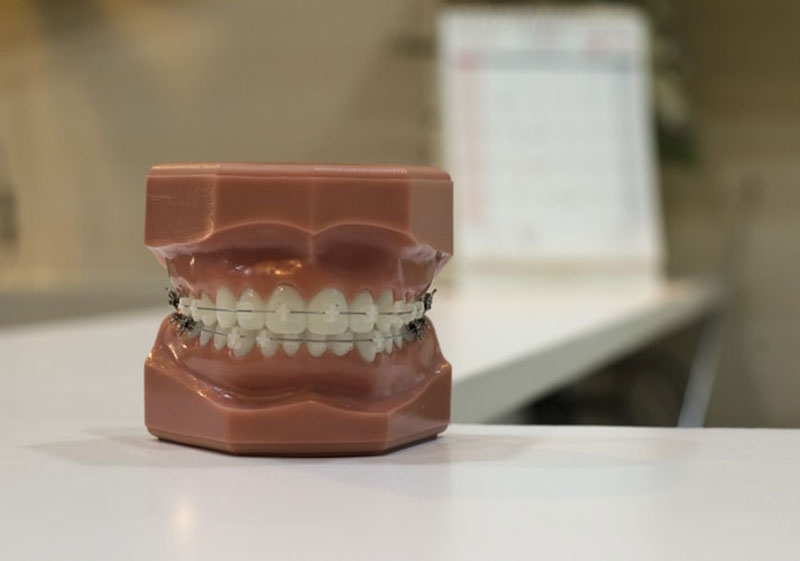Over the course of their careers, dentists will make many important decisions. Where to study, where to apply for jobs, when to move on from a job, and more. There will come a time when you will need to decide between taking a job in a corporate dentistry office or working at a private dental practice.
This decision may come up when you first begin practicing, or later in your career. There is no correct choice, only the right choice for you. Making this decision will depend on many factors, including the time in your life that this choice comes.
Choosing whether you want to work as an individual or work with a group can be a difficult choice. There is a period of rapid change happening right now, and you need to be well-read on the current state of the industry.
In this article, created by our team at Trafft, will teach you about the pros and cons of each of the two main types of dental offices. The two main types of dental offices are:
- Private practices, managed and owned by dentists.
- Corporate practices are managed and owned corporately.
Private Dental Practice
The manager and owner of the private dental practice is a licensed and practicing dentist. They must find staff and define treatment policies, and also manage all the office proceedings, such as finances.
Advantages of Private Dental Practices

Private dental practices are often smaller, which is great for communication and ease of access. It can also be easier to find opportunities in this type of environment. If your employer supports your goals, it will be easier for you to reach them. Often, these practices have a familial and supportive atmosphere, and because of these respectful relationships, people feel comfortable giving and receiving feedback. This is critical to excellent performance, whether you are a doctor or a hygienist.
Community Roots
Private dentists with practices are well-known, engaged members of the community. They provide a more personal atmosphere and the patients feel cared for. You are not just a number or a name on a script, but a person.
Conversely, general practice dentistry at larger clinics is more focused on getting patients in and out as quickly as possible, which is the opposite of the workings at private dental practices, which tend to be more like seeing a friend who is there to help you out.
Sweet Freedom
Owning and managing your own private dental practice means autonomy. After all, it is your own personal office. You can choose from whichever methodology you choose, whether it be Dawson, LVI or Pankey. You can even decide to vary this from patient to patient if needed. As a private dentist, you have complete clinical autonomy. On top of all this, the salary of a private practice dentist is not bad either.
Disadvantages of Private Dental Practices
Flying Solo
There is a lot of responsibility that comes with owning your own practice. Hiring and managing staff, finances, vacations, insurance, and a lot of paperwork will be your responsibility. You will need to find an experienced staff that you trust because you will find yourself with less time for patients.
So, how can you manage your practice successfully? Excellent software is vital. Software for appointment booking can simplify everything. It can turn your practice from disorganized to efficient in a short amount of time.
But how do you choose which software to use? There are plenty of options on the market, from budget brands right to expensive. We recommend Trafft. Trafft is a fantastic appointment booking product that digitizes and automates your scheduling.
Competition
An important thing to consider as a private dentist is how you will compete with the corporate general dentistry offices in your area. More often than now, they will have more money to spend on dental marketing and research than your private dental practice, which is why loyal customers are essential. Treat your customers well and they will come back time and time again. It can be hard to get going but once you have got those customers, you will be golden.
Corporate Dental Practice
Corporate dental offices are centrally managed. This means that they will have office workers who undertake the everyday functions of hiring, administration, and marketing. They also decide on the policies and financial considerations. These practices are corporate-managed and may be privately owned, publicly traded, or directed by investors.
You cannot always tell if a practice is a corporate dental office. Some choose not to market this feature and present as if they are private practices in order to garner trust. To the customer, it is all the same. Some, however, are easily distinguishable because of their name.
Dental Support Organizations (DSO) is the corporation of dental offices. Trends in the dental industry are now leaning towards more of these appearing. Some established examples are Heartland Dental, Dental Works, and Aspen Dental.
Advantages of Corporate Dental Offices

Corporate dental offices are compelling to many needing to start work right away. This may be because of student debt, or because it is hard to score a job at a private practice. In general, it can be tough to find a job due to the high numbers of dentists graduating in the area.
There are many set up costs if you start your own practice. You can avoid these by working in corporate practice. Not to mention that your own practice would take quite a while to turn a profit.
Freedom
Corporate dentistry does come with its own sense of freedom, which is partly due to not having the responsibilities of owning your own practice. You simply see patients without dealing with all the paperwork your own practice would manifest. You also do not have to partake in any of the finance or human resources management.
You can also request a schedule and salary that will be set, and your wage will not fluctuate as profits do. You could even choose to work fewer hours to follow other pursuits, freeing up a lot of free time for family life, or leisure activities. You also have the freedom to transfer to a sister office in another city if you choose to move. Dentists earn a lot of money – so much that even if they do work part-time, they could still be earning around $100,000 annually. This would be a tough ask in a private clinic where profits are not guaranteed.
More Resources
Larger corporate practices have access to more resources for technology and marketing. These technologies and marketing attract more patients which can mean more money for you. Working at a well-known practice can also be excellent for your reputation if the group is well-known and received well. Marketing helps with this.
It is also a benefit that you will be working with a large team of like-minded individuals. You can discuss cases together and learn from each other. In a smaller practice, you may be the only dentist, while there will be general dentists as well as specialists in a large corporate practice. The general dentist's definition is that they are your main dental provider. It is important to have a mix of both on a team to learn from each other.
Disadvantages of Corporate Dental Offices

Although a small, tight-knit group of workmates may sound appealing, groups who function as a family often fight like a family. It can be unsettling to have coworkers too involved in your personal life. For newcomers, it can be tough to join a close group of employees and get to know people when they know each other so well already. However, with time and effort, this hurdle can be overcome.
Dentists are seen as ‘Employees’
Corporate practices often have quotas for dentists to meet. This means that you may have to get your clients in and out faster than you would like. With your four years of education before going to dental school, you know better than anyone what a patient needs. It can be tough to push back to the DSOs when you need more time with your patients. Unfortunately, they often prioritize maximizing profits over patient health.
Limited Earnings
While you may earn a lot in a corporate job, there will be a limit to your annual salary. To earn more, you will have to request a raise, which may be denied. In private practices, after some time, you should be turning a good profit. The income of private practice dentists is hard to estimate, due to varying success rates. However, if you are successful, your earning potential is uncapped. You also oversee the price of your services, and you could raise them to garner more money.
Which Type is Best for You?

To know which type of office to choose, you will need to examine the exact practice you are looking to work for. You need to know how much you would earn in each, as well as what sort of performance management structure they use. You should find out ahead of time how patient scheduling is done, and whether or not you will have to work overtime and who makes the staffing decisions. Is it your responsibility to ensure revenue or have input on staffing matters? Is this something you want or not?
There are so many questions that need answers before you make your decision.
Freedom vs Comfort
There is undoubtedly more freedom in owning a private dental practice. You can set your own prices, choose your staff, and have full autonomy over the practice. In private dental practices, marketing is key. Be sure to design focus on your marketing and choose an optimal location.
There is more comfort and security in taking a role at a corporate practice. You can go into the job with everything set up – the equipment, the patients, the marketing, etc., which takes a lot of pressure and financial burden off you. All you need to do is see patients!
Owning vs Working
If you choose to own your own private dental practice, it will come with a lot of responsibility and a large amount of personal financial risk. However, these may be worth it to you.
Working for a business is very different, as you will have significantly less pressure on yourself, but you will not see any of the profits. If you are seeking a challenge and want to get out of your comfort zone, a private dental practice may be for you.
If you enjoyed reading this article about the private dental practice, you should read these as well:
- Online doctor appointment scheduling software to use for your clinic
- Management consulting vs strategy consulting. What’s the difference?
- Appointment reminder templates to use (For SMS and Email)







